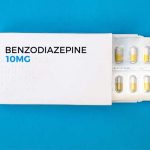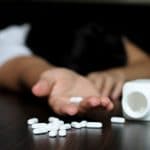- What Are Sleeping Pills?
- Effects Of Sleeping Pills
- Sleeping Pill Abuse
- Warning Signs Of Addiction
- Sleeping Pill Addiction Treatment Options
Sedative-hypnotics, including Lunesta and Ambien, are prescription drugs used to treat a variety of sleep disorders. Sleep medications are intended for short-term or occasional use because of the risk of tolerance and dependence.
If you or a loved one develops a sleeping pill addiction, it may be time to reach out for help. Professional addiction treatment centers offer a wide-range of services that can help with addiction and co-occurring mental health disorders.
What Are Sleeping Pills?
Sleeping pills are central nervous system depressants and include z-drugs, sedatives, and hypnotic prescription drugs. However, barbiturates, like phenobarbital, and benzodiazepines, like Xanax, are sometimes used to treat sleep disorders as well.
Commonly prescribed sleeping pills include:
Some people may try over-the-counter sleep aids, like melatonin or diphenhydramine (Benadryl), but these medications often cause next-day drowsiness.
Prescription sleeping pills can be effective in treating insomnia (difficulty falling or staying asleep) and parasomnia (sleepwalking), however, sleeping pills are often abused for their sedative effects.
Effects Of Sleeping Pills
Most sleep medications enhance activity of the neurotransmitter gamma aminobutyric acid (GABA). GABA slows brain activity and promotes relaxation and sleep. Side-effects vary but may be more intense in the beginning, until your body adjusts to the medication.
Common side-effects of sleeping pills include:
- drowsiness
- confusion
- slurred speech
- impaired concentration
- memory loss
- dizziness
- dry mouth
- headache
Sleep aids are also central nervous system depressants, which means they slow breathing, heart rate, and blood pressure. If you take too much or combine them with other drugs, you increase the risk of experiencing a potentially fatal overdose.
Sleeping Pill Abuse
About 33% of Americans struggle with sleeping problems, which can interfere with every aspect of life. Getting enough sleep is vital for a healthy overall well-being, including mental health.
Sleeping pills can be an effective treatment for insomnia, however, they are not recommended to be taken frequently or long-term.
Sleeping pill abuse may occur because of an increased tolerance, which means higher doses are needed for the same effects. Sleeping pill abuse may also include:
- taking the medication more frequently
- taking someone else’s medication
- mixing the medication with other drugs
- taking the medication for its pleasurable effects
Dependence & Withdrawal
Abuse may lead to physical dependence, which occurs when the body adapts to getting a regular dose of the drug. When you become dependent, you may experience withdrawal symptoms if you stop taking sleep medications. Depending on the drug, withdrawal symptoms may include:
- shaking
- anxiety
- agitation
- increased heart rate and blood pressure
- intense cravings
- hallucinations
- seizures
- rebound insomnia (difficulty sleeping during withdrawal period)
Sleeping pill withdrawal symptoms can be dangerous and should be monitored in a professional detox. A detox program can help you slowly come off of the medication and prevent life-threatening symptoms.
Warning Signs Of Addiction
Long-term use of prescription sleeping pills may lead to a substance use disorder, also known as addiction. It’s important to know how to recognize the signs and symptoms of substance abuse issues.
Signs of a sleeping pill addiction include:
- prioritizing drug use over other responsibilities
- unable to stop using sleeping pills
- continuing to use prescription drugs, regardless of the consequences
- isolating from family and friends
- engaging in high-risk situations
- losing interest in other activities that don’t involve drug use
Sleeping Pill Addiction Treatment Options
It can be difficult to stop sleeping pill abuse without the help of experienced professionals. An addiction treatment program can provide personalized, evidence-based services to help you learn to live drug-free. If you or a loved one is struggling with drug abuse issues, help is available.
Depending on your needs, you may be connected with the following treatment options:
Detox
A detox program is often the first step of an addiction treatment program if you are at risk of experiencing withdrawal symptoms. During a detox program, you will be monitored 24/7 and given medications to ease severe symptoms.
Inpatient Rehab
An inpatient treatment program helps you focus on your recovery in a safe environment, where a member of your treatment team is always accessible. You will have a daily schedule of structured activities that may include group therapy, individual counseling, and 12-step facilitation.
Outpatient Rehab
Outpatient rehab allows the flexibility of living at home but offers many of the same services as inpatient programs. At Northeast Addictions Treatment Center, we offer a wide range of outpatient services, including cognitive behavioral therapy, group therapy, and family therapy.
If you or a loved one would like to learn more about our treatment programs, please reach out to an addiction specialist today.
Sources
- Centers For Disease Control And Prevention (CDC) — 1 In 3 Adults Don't Get Enough Sleep
- Informedhealth.org — Using Medication: What Can Help When Trying To Stop Taking Sleeping Pills And Sedatives?
- National Institute On Drug Abuse (NIDA) — Prescription CNS Depressants DrugFacts
- National Library Of Medicine: MedlinePlus — Medicines For Sleep
Written by
Northeast Addition Editorial Team
©2024 Northeast Addition Center | All Rights Reserved
This page does not provide medical advice.



